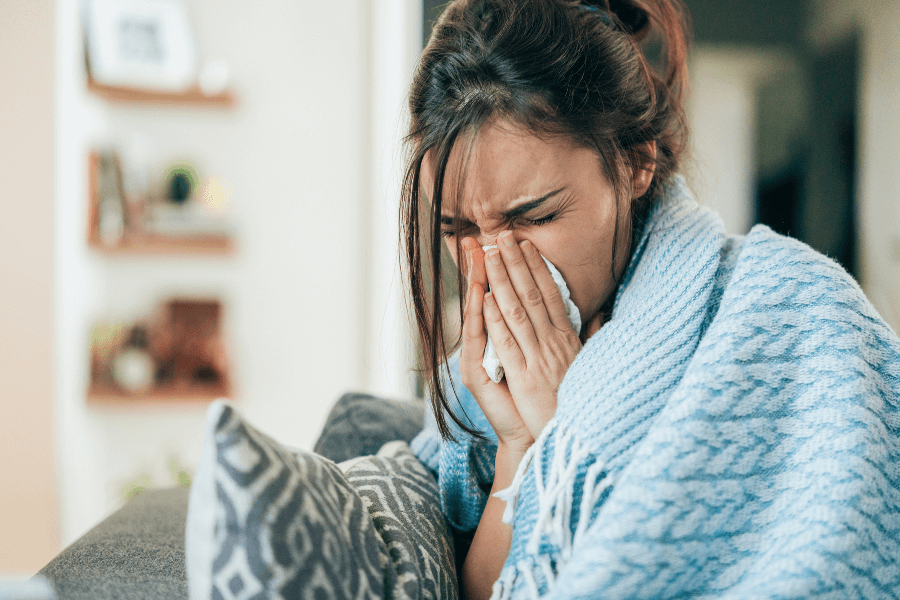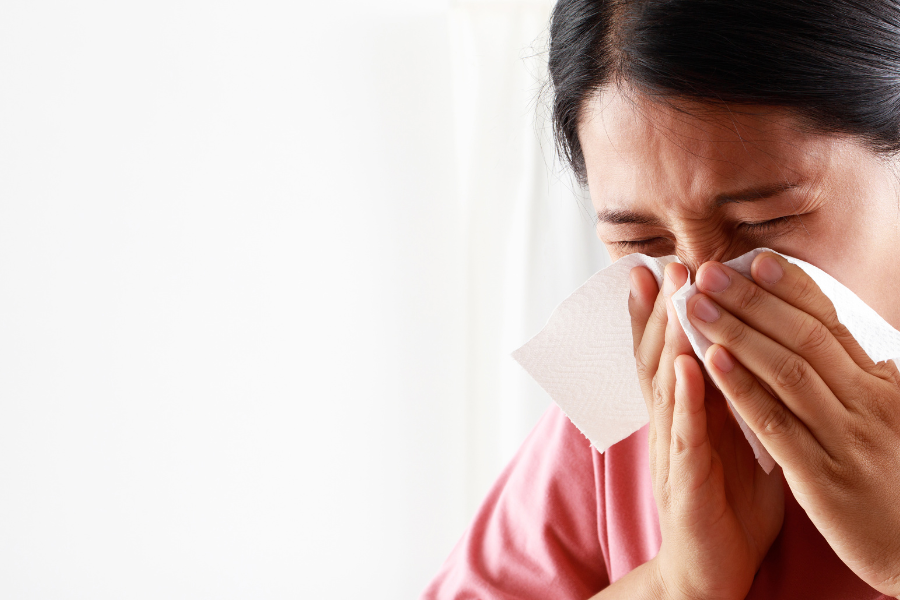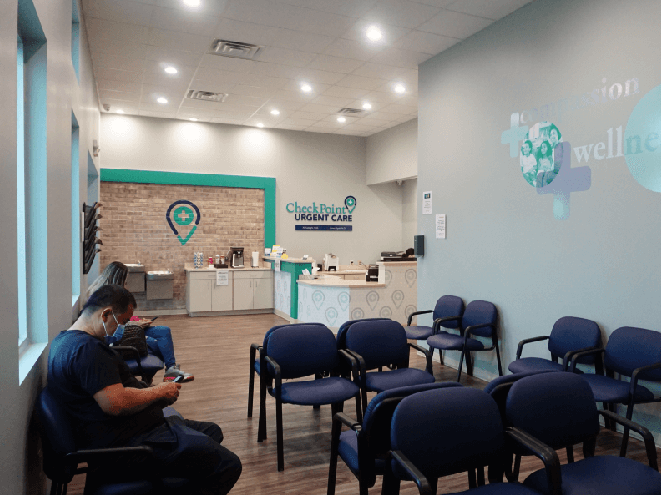While cold weather can’t necessarily make you sick, certain illnesses do tend to peak in the winter months. When it is cold outside, people tend to spend more time indoors, which can lead to the spread of certain diseases. Some viruses thrive and even spread better in colder, drier air. This, coupled with the stress and travel that the holidays bring, can disrupt sleeping and eating patterns. This can lead to a weakened immune system susceptible to catching a bug.
Common Winter Illnesses
During the winter, there are a few common culprits concerning that stuffy nose or sore throat. Here are some of the most common winter illnesses, how to treat them, and some prevention methods.
COVID-19
Covid is what most people turn to when they first catch a cough or a slight fever. Covid-19 is highly contagious, and while it spreads throughout the year, studies have shown activity does peak in the winter months. On the surface, it’s nearly impossible to tell the difference between Covid and the common cold. If you suspect you or someone in your home has symptoms, plenty of at-home test kits are available at your local pharmacy. Most people can treat Covid at home with over-the-counter medications, fluids, and rest. Your best protection against Covid is vaccination.
RSV
Respiratory syncytial virus, or RSV, is a respiratory virus that can severely affect children two years old and younger. RSV can cause bronchiolitis in those under two and cause apnea, and unexplained cessation of breathing, in newborns, which can be severe. Symptoms of RSV include cough, runny nose, fever, rapid breathing, and upper airway congestion. While there is no vaccine for RSV, researchers are working on it. Treating RSV can include managing fever and pain with Tylenol or Advil and lots of fluids.
Flu
Influenza, or the flu, is a contagious respiratory virus with a sudden onset. Symptoms can include fever and chills, cough, congestion, muscle/body aches and vomiting, and diarrhea in children. Treating the flu can be tricky– if caught early enough, prescriptions like Tamiflu may help diminish symptoms. Getting an annual flu shot is a great way to protect yourself and your family from illness.
Common Cold
The common cold is caused by a virus and generally has milder symptoms than the above illnesses. Various viruses can cause colds and symptoms like runny nose, cough, sore throat, fever, and congestion, lasting anywhere from 5-14 days. Testing is necessary to rule out a more severe illness, like Covid or the flu. Treating a cold involves lots of rest, fluids, and over-the-counter medications.
Preventing Sickness in the Winter
While not all illnesses can be prevented, there are a few steps you can take to help protect yourself and others from getting sick:
- Wash your hands with soap and water frequently
- Stay up to date on vaccinations
- Get plenty of rest
- Stay home if you don’t feel well to avoid passing germs to others
When to Visit Checkpoint Urgent Care
If you need testing to rule out a serious illness or your symptoms are worsening, it might be time to visit the professionals at Checkpoint Urgent Care. With locations in New Iberia, Crowley, and Opelousas, Louisiana, our team is available seven days a week to get you feeling better faster. Find a location near you online today.








